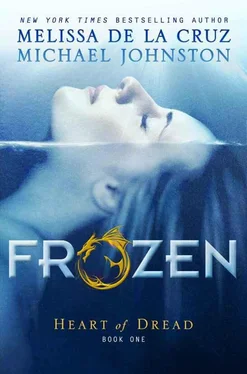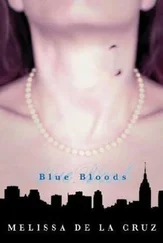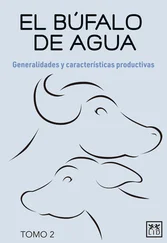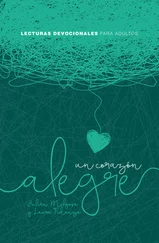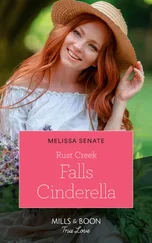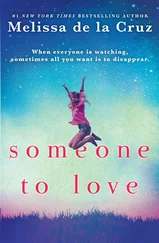The Slob had a scar above his right eyebrow, dyed white-blond hair “drau style” in a military fade, and tonight wore a vintage velour tracksuit—a real synthetic, not the cheap animal furs that the other slavers preferred. His face was all sharp angles, handsome but with an edge. He didn’t look up when Nat joined the table.
“Deal me in,” Nat said, taking a seat next to the dealer, traditionally the luckiest draw in the table. “One hundred large,” she said, with a brilliant smile as she slipped him a doctored heat-credit card. Farouk assured her it would pass the scanner in the room, but once it was out of range it would read zero.
“Feeling lucky tonight?” she asked her fellow gamblers. The Slob wasn’t the only slaver at the table; she could tell by the tattoos on their faces. There was a girl, about her age, similarly bejeweled and bedecked, who nodded when she approached. “Love your shoes,” the girl cooed.
Nat played conservatively at first, allowed herself to win a few hands, but not so much that she attracted attention. Wes had cautioned her to reel him in slowly. He’s a wise guy—he won’t expect you to be a hustler—the tai tais like to gamble for the thrill—the slavers let them in because they bring big money to the table. He’ll like a challenge. Beat him up a little.
It was time. Nat won the next hand and the next, by the third, she had quintupled her money.
“Big win for a little lady,” the slaver said in his clipped accent.
“Eh,” Nat said dismissively.
“Too boring for you?”
“Let’s make it exciting,” she said with a gleam in her eye.
He shrugged. “Sure. What do you want?”
“I hear you have a fast boat,” she said.
The slaver seemed amused. “You can’t have Alby. Out of the question.”
“Too scared you’ll lose, Slob?”
For a moment, Nat saw the rage in the slaver’s eyes. No one called him Slob to his face. But Nat knew she would get away with it. She had seen the way he looked at her legs. She giggled, letting him know she was flirting, playing her role.
The slaver gave her a thin smile. “Please, call me Avo.”
“Avo, then,” she said.
“If I put the bird in play, what will you give me?” he said, leaning over with a wolflike grin. “That gem around your neck?” he asked.
“This? A mere trifle,” she said, slipping the stone underneath her collar and wishing he hadn’t noticed it at all, irritated with herself that she had worn it. “This is the real treasure.” Nat placed a small velvet pouch on the table. She pulled the string and showed him what was inside: tiny crystals that sparkled in the light, bright as diamonds.
It was fleur de sel. Sea salt. Real salt, not the synthetic kind—which was at once too salty and not salty enough—but the real thing, from before the floods, when the world was still whole. The last in the world, harvested before the oceans were poisoned. It was one of the souvenirs she had taken from the treatment center, nicked from the commander’s kitchen, and she had been saving it for just the right moment. Wes didn’t ask her where she got it, only told her it wasn’t enough to buy a ship, but it might be enough to win one back if she was clever enough.
Avo Hubik eyed her. “Do you know how valuable that is?”
“Yes,” she said evenly.
“I doubt it; if you did, you would not wager it so easily,” he said, picking up his cards.
“In New Kong we bathe in it,” she said, and waved her cards like a fan. The rest of the table folded, watching the two circle each other—like a mating dance—one before a kill.
“Why do you want Alby so bad?” he asked.
“I have a hobby. I like taking what matters most to people. It keeps life interesting.” She yawned.
“You can’t have the boat.”
“We’ll see,” she said sweetly.
“Fine. Let me see the salt.”
He held it to his eye and then tossed it to the beautiful girl with bright orange hair and gold eyes who was standing behind his chair. A sylph, maybe? Nat couldn’t be sure. The mages’ mark on her cheek shaped like a serpent meant she was a healer, Nat knew. “Check this,” he said.
“It’s real,” the girl said, tasting a little of it with her finger. Her eyes shone greedily.
Nat flicked her eyes away, disturbed. “Show me your cards,” she said, laying down hers: a straight flush.
This time, the slaver smiled broadly. “Full house.” He took the velvet bag of salt off the table.
“My husband will kill me,” she mumbled.
“I’ll make it easy; you win this next one, you can have the bird,” he said with a smile now that he could afford to be generous. He threw the keys to the boat in the middle of the table. “I’m a gentleman.”
Nat nodded. She was prepared. Wes’s words rang in her ears. He’ll get arrogant, he’ll want to show off . . . and when he does . . .
Now was her chance. She had been watching the game closely, counting cards. The dealer put down the first cards. King of clubs. Queen of diamonds.
Avo Hubik smirked.
The next one: two of hearts.
The slaver studied his cards with a frown.
An image came to her unbidden: Avo taking another card and drawing a king, which would give him a high pair, which would win him the game, as she held nothing but garbage in her hand. The image faded. It was a premonition. A warning. She understood that she couldn’t let that happen, and she began to panic. She had to do something! But what? She couldn’t control her power, she couldn’t do anything . . . she was paralyzed, cold—
A sudden gust of wind blew the cards from the deck, which scattered across the table.
“What the . . . ?” the dealer cursed.
The gold-eyed girl stared at Nat, her eyes blazing.
Nat didn’t dare look up and scrunched her forehead, pretending to concentrate on her cards.
Was that her? How did that happen? It didn’t matter; what mattered was that the deck had been shuffled.
Avo didn’t seem to think anything of it. He tossed a card and picked up a new one.
She picked up the next card, and somehow, before she had even looked at it, she knew she held the winning hand. Two of clubs. With the two of hearts on the table, it made a pair.
The dealer threw down the river card. Nine of clubs.
Nat felt her skin tingle with anticipation.
The slaver showed his hand with a grin. Ace high.
Nat showed hers.
She had won with the lowest cards in the deck. A pair of twos.
The slaver’s face paled.
She took the keys off the table. “I believe this is mine.”
“T HIS is what I won? This is your legendary ship? I say we give it back to the Slob!”
Wes ignored her and jumped onto his boat, which was moored to a rotting pier at the far end of the city. A skeleton of a roller coaster and a Ferris wheel stood not far from them, and a handful of boats bobbed in the water, all of them half-flooded derelicts, their hulls blasted full of holes, engines missing. The rest of the team followed him on board, but Nat remained on the pier, her arms crossed in front of her, an angry, frustrated look on her face.
“Are you going to stand there all day or are you going to get in?” he said finally, as he helped Shakes pull off the tarp.
“I’m not getting in that . . . it looks like it’s about to sink!”
“Suit yourself,” he said, whistling as his crew found their places and hauled in the supplies for the journey. He unrolled the canvas, feeling a glow of pleasure from being back on board. Wes had missed his ship, and its loss had been a harder blow than he would care to admit. He wasn’t one of those sentimental fools, overly attached to their vehicles. A car was just a car, a truck was just a truck. But he did have a soft spot for this one, although he was more amused than annoyed by Nat’s insults. The boat was an old Coast Guard ship, a converted fishing trawler, more than a century old, and built to last, fifty feet long, with a battered hull, a deck pocked with holes and a Jolly Roger painted crudely on the starboard side, ALB-187 etched on the transom. The steel rails had rusted, and the paint was chipped, sure, giving the boat a saggy, dilapidated air, but there was more to Alby than looks alone. Nat might not know it, but he and Shakes had done major work on its engines, and the old girl practically had rocket boosters for propellers, that’s how fast it could go.
Читать дальше
